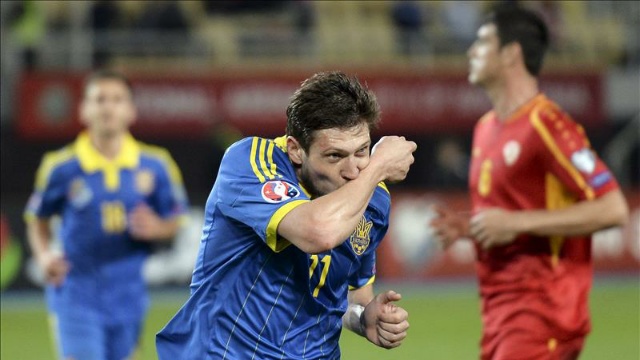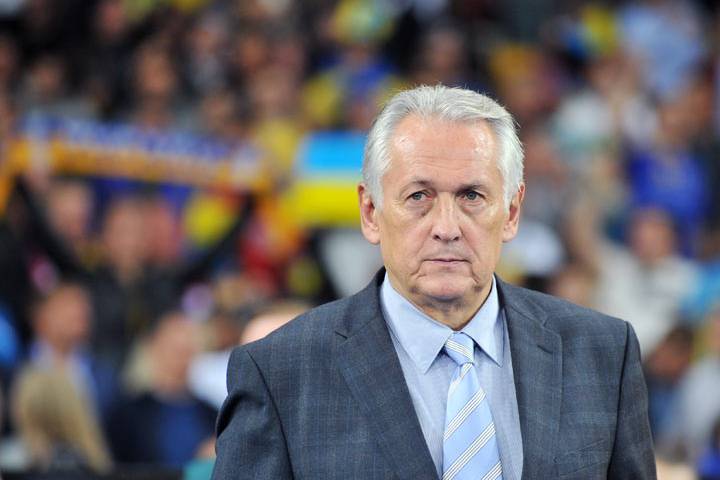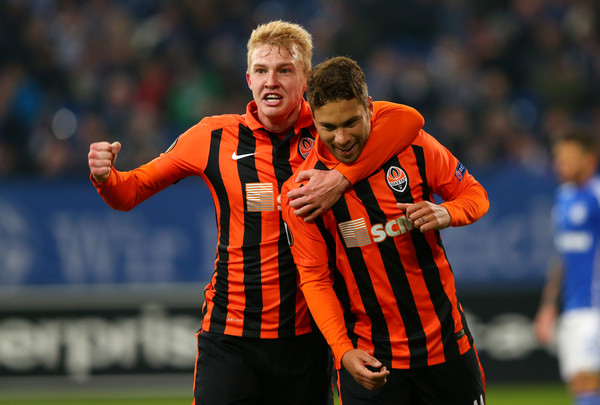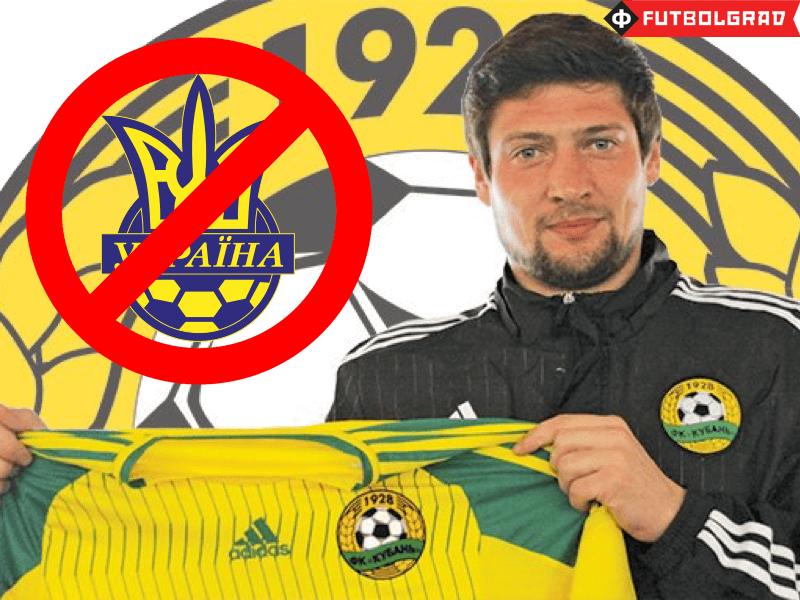Manuel Veth –
Yevhen Seleznyov’s move from Dnipro Dnipropetrovsk to Russian Premier League club Kuban Krasnodar has been the most controversial move during the Ukrainian winter transfer window (more on the story here).
Seleznyov’s Move to Russia has long been a Source of Contention in Ukraine
The subject of Ukrainian players moving to Russia in a time of conflict has long been a source of contention in Ukraine, and many Ukrainian players have stated that they would under no circumstances move to Russia—the latest being Dynamo Kyiv defender Yevhen Khacheridi.
At the time Seleznyov justified his move to Russia by stating that he would have a better chance playing for Ukraine at the European Championships next summer in France, as he believed that the Russian Football Premier League (RFPL) was a stronger competition than the Ukrainian Premier League (UPL)—a statement that is not without truth given the poor financial situation of the majority of UPL clubs.

Seleznyov has argued that a move will help his Euro 2016 chances – Image via besoccer.com
At the same time, however, Seleznyov chose to move to Kuban Krasnodar despite the fact that he had several offers from clubs in other European leagues. Furthermore, like his former club Dnipro, Kuban has a history of unpaid wages, which begs the question why Seleznyov chose to move to Kuban. Finally, Kuban are currently battling relegation from the RFPL. All of these facts don’t exactly make for a good environment to prepare oneself for the Euros.
Fomenko Left Out All Ukrainians Playing in Russia
Ukraine are playing two friendlies next week—against Cyprus (March 24), and Wales (March 28)—and Seleznyov was not called up for the two friendlies. In fact no Ukrainian player currently playing in the RFPL was called up by Ukraine’s national team coach Mykhaylo Fomenko to play in next weeks friendlies—the other potential call ups were Andriy Pylyavskyi (Rubin Kazan), Oleksandr Zinchenko (Ufa), and Bohdan Butko (Amkar Perm), as well as the ethnic Serbian Marko Dević (Rubin Kazan).
The fact that Seleznyov, along with the other four Ukrainians who play in Russia, was not called up to play for Ukraine has since caused a media storm in both Ukraine and Russia. As both both Butko’s and Pylyavskyi’s clubs announced on their official homepages that the players were called up only for them not be included in the official squad published by the Football Federation of Ukraine.
It later emerged that both Rubin and Perm received letters two weeks ago that their respective players were included in the preliminary squad of the Ukrainian national team. Kuban head coach Sergei Tashuyev has told Sport Express that Kuban also received a letter, but that something must have changed, as Seleznyov was not called up for the final squad.
But press attaché of the Ukrainian national team Oleksandr Glyvinsky told Tribuna on Thursday that “This was the decision of the coaching staff. They are not in the team because of sporting reasons. This was not a political decision.” Glyvinsky further pointed out that national teams are required to contact clubs two weeks ahead of the final selection about the possibility that their players could be included.

Mykhaylo Fomenko – Image via Shaw Global News
Head coach Fomenko meanwhile refused to comment on leaving out Seleznyov “There is nothing to explain here. Everything else will be explained at the press conference on Monday.” It will indeed be interesting if Fomenko will comment on Seleznyov’s omission from the squad. Asked about his omission by Segodnya Seleznyov responded, “So I am weak. What can I do about it?”
All of this begs the question whether Fomenko’s decision to leave out the “Russians” was a political decision. In the past Fomenko has called up both Pylyavskyi and Zinchenko for the important qualification playoffs against Slovenia last November. This indicates that politics may not have been the main reason as to why Fomenko decided to exclude the Ukrainians that play in Russia.
There are good sporting reasons to leave out RFPL Players
Oleg Salenko—a retired player for both the Ukrainian and Russian national teams—believes that the decision has nothing to do with politics “I think the failure to call Seleznyov is not related to politics. Instead the coaching staff of the national team has decided to try out the other players.” In the case of Zinchenko, Salenko stated, “To tell you the truth, Ufa is seldom at the centre of attention of Ukrainian specialists. In any case, if Zinchenko wants to play for the national team, he must play better in the Russian championship.”
Like Butko and Pylyavskyi, Zinchenko belongs to a group of fringe players and their omission can certainly be explained with sporting reasons. Seleznyov has been a mainstay in the team, however, but his performance since joining Kuban have not been outstanding—he has scored one goal in two games and received an average whoscored.com score of 6.85.

Viktor Kovalenko (left) could replace Seleznyov long term – Image via Zimbio
Perhaps the coaching staff decided it was time to test younger players. Indeed Ukraine’s recent squad includes the likes of the 20-year-old Viktor Kovalenko (Shakhtar Donetsk), and the 22-year-old Ivan Petryak (Zorya Luhansk). Both players have had a stellar season, and both can play in offensive midfield, but also as strikers.
Finally, there is also the fact that Seleznyov’s move to Russia has caused a major storm in the Ukrainian media, and was criticized by many Ukrainian players—including members of the national team. Perhaps team harmony may have been a reason that Seleznyov was not included in the squad for the friendlies, which may be an ominous sign for his inclusion in the Euro squad.
Manuel Veth is a freelance journalist, and PhD candidate at King’s College London. Originally from Munich, Manuel has lived in Amsterdam, Kyiv, Moscow, Tbilisi, London, and currently is located in Victoria BC, Canada. His thesis is titled: “Selling the People’s Game: Football’s transition from Communism to Capitalism in the Soviet Union and its Successor States”, and will be available to readers later this year. Follow Manuel on Twitter @homosovieticus.




















COMMENTS